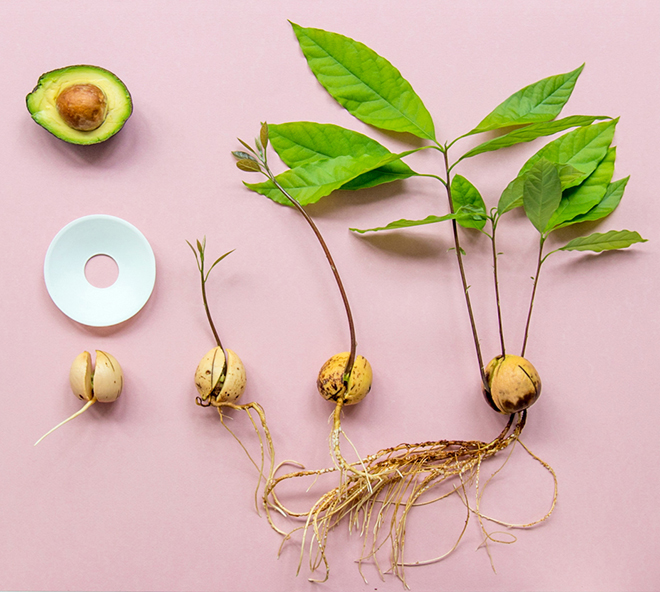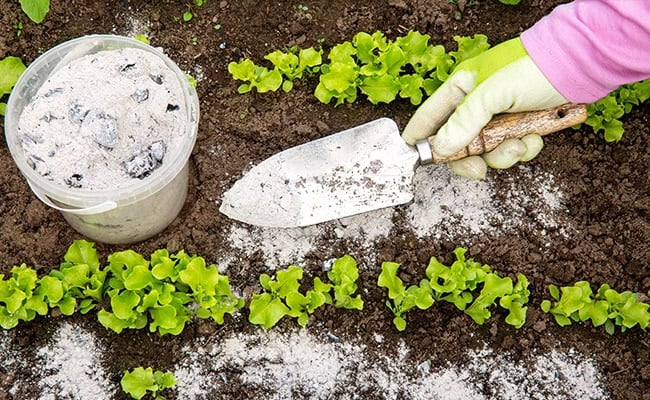Yes, you can compost avocado pits. Grinding them into a powder and adding them to a compost pile is beneficial for plants.
Avocado pits, although slow to decompose, provide essential nutrients like potassium and magnesium for plant growth and soil enrichment. They can enhance the quality of your compost, contributing to a healthier ecosystem. Additionally, dehydrating the pits and using them in smoothies, baking, or salads is a creative way to make the most of this natural resource.
Avocado pits, when broken down effectively, become a valuable component in sustainable gardening practices. By incorporating avocado pits into your composting routine, you are not only reducing waste but also nurturing your plants with nutrient-rich materials.

Credit: discover.texasrealfood.com
Benefits Of Composting Avocado Pits
Avocado pits can be incorporated into a compost bin or pile, gradually decomposing to yield nutrient-rich compost. Despite their hardness, they contribute to the beneficial ecosystem. Additionally, composting avocado pits helps in reducing food waste. Avocado skins, pits, and unusable meat can all be composted, but it’s important to note that avocado skins may decompose at a slower rate. Moreover, it’s essential to avoid composting certain materials such as plastic, bioplastics, styrofoam, meat, bones, dairy, and cooked foods. Instead, consider dehydrating avocado pits, grinding them into a powder, and adding them to your compost pile to reap the potassium and magnesium nutrients that can enhance plant growth or soil quality.
Challenges Of Composting Avocado Pits
Avocado pits, also known as avocado stones, pose some challenges when it comes to composting. The slow decomposition rate of avocado pits is one of the main issues. These pits are considered ‘brown matter’ and do not fully decompose at the same rate as other kitchen scraps. Therefore, adding avocado pits to your compost pile may slow down the overall composting process. To address the slow decomposition of avocado pits, there are special composting techniques that you can employ. One way is to grind the pits into a powder before adding them to the compost pile. This will break down the pits into smaller particles, aiding in the decomposition process. Another option is to dehydrate the pits and then blend them into a fine powder, which can be used as a nutrient-rich additive for your plants. While avocado pits can be composted, it is important to note that there are certain materials that should not be composted. These include plastic or plastic-coated products, styrofoam, meat, bones, dairy, and cooked foods. It is crucial to avoid adding these non-compostable materials to your compost pile to maintain its effectiveness and avoid any potential issues. |
Best Practices For Composting Avocado Pits
Composting avocado pits is beneficial, but ensure they are ground into a powder for faster breakdown. Avocado remnants contain nutrients like potassium and magnesium that enrich your compost or soil, aiding plant growth. Avoid tossing whole pits to prevent slowing down the composting process and interference with decomposition.
| Grinding Avocado Pits | Balancing Compost Ratio |
| Grind avocado pits into a powder for nutrient-rich compost. | Balance compost with a mix of green and brown materials. |
| Avocado remnants contain potassium and magnesium for plant growth. | Green materials are nitrogen-rich, while brown aids decomposition. |
| Use powdered pits to feed plants or enrich the soil naturally. | Proper balance ensures efficient composting and healthy soil. |
Alternative Uses For Avocado Pits
Avocado pits can be composted, but they may take longer to decompose compared to other materials. To speed up the process, grind the pits into a powder and add them to your compost pile. The nutrients in the pits can benefit your plants and soil.
| Dehydrating Avocado Pits | |
| – Dehydrate pits in low oven or sunlit window. | – Blitz dried pits for smoothies, bread, salads. |
| Creative Ways to Use Avocado Pits | |
| – Grind pits into powder for composting. | – Nutrient-rich for plant growth and soil. |
Guidelines For Composting
Avocado pits can be composted, but there are guidelines to follow for successful composting. One important guideline is to avoid adding certain items to your compost. These include plastic or plastic-coated products, bioplastics, Styrofoam, oil, meat, bones, dairy, and cooked foods. These items can hinder the composting process or attract pests.
To compost avocado pits, it is recommended to grind them into a powder and add them to your compost pile. Avocado pits contain beneficial nutrients like potassium and magnesium, which can help your plants grow. Another option is to dehydrate the pits and crush them to use in smoothies, baking bread, or as a salad topping.
While avocado pits can be composted, it is worth noting that they take longer to decompose compared to other compostable materials. Therefore, patience is required when composting avocado pits.

Credit: parkseed.com
Community Experiences
Avocado pits can be composted by grinding them down into a powder and adding them to a compost pile, as they are full of beneficial nutrients. Dehydrating the pits and blending them can also be used in smoothies, bread, or salads.
However, avocado skins tend to decompose slowly, but they can still be composted.
Community Experiences: There have been numerous discussions about composting avocado pits on Reddit. Many users have shared their real-life experiments with composting avocado pits. Some have found success in grinding the pits into a powder and adding them to their compost pile. The pits contain beneficial nutrients such as potassium and magnesium, which can help plants grow. Others have mentioned that avocado skins tend to be slow to decompose. However, it is important to note that avocado pits are considered “brown matter” and may slow down the composting process compared to other kitchen scraps. It is also advised to avoid putting avocado pits directly into the compost if you want to avoid picking them out later. Overall, while composting avocado pits is possible, it may require some extra attention and consideration.Conclusion & Recommendation
Avocado pits can be composted by grinding them into a powder and adding them to a compost pile, enriching the soil with nutrients. However, avocado skins decompose slowly, so it’s recommended to process them first, either by drying and blending or adding them to a compost bin in small pieces.
| Avoid composting avocado in your bin |
| Avocado pits slow down the composting process |
| Grind pits into powder for nutrient-rich compost |
| Dry avocado pits for use in smoothies or baking |

Credit: www.botanopia.com
Conclusion
While it is possible to compost avocado pits, it is important to note that they are slow to decompose compared to other compostable materials. If you choose to compost avocado pits, it is recommended to grind them into a powder first and add them to your compost pile.
This will help release the beneficial nutrients they contain, such as potassium and magnesium, which can benefit your plants. However, if you’re looking for faster composting results, it may be best to avoid adding avocado pits to your compost.

I am a graduate of Bangladesh Agricultural University, where I delved into various agricultural disciplines, equipping me with a profound understanding of agriculture. Beyond academics, I have hands-on experience in gardening and crop cultivation. My passion is to embrace sustainable farming and horticulture. With a BSc in Agriculture, I am dedicated to promoting environmentally conscious and efficient agrarian practices.
Bachelor of Science (BSc) in Agriculture (Hons.)
Master of Science. (Sustainable Agriculture & Food Security ) (MS)
Bangladesh Agricultural University




